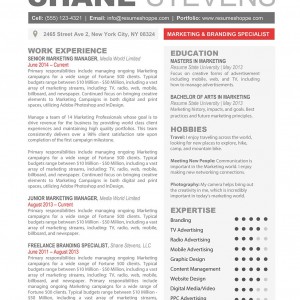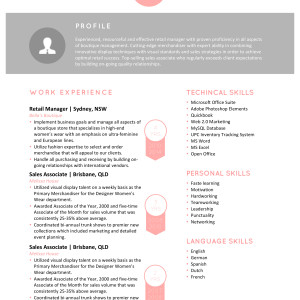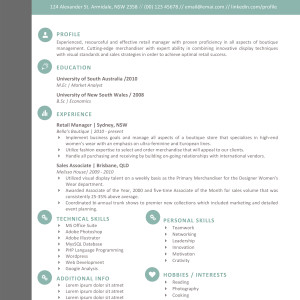What to Include in a Cover Letter?
Your cover letter is without a doubt one of the most important documents when you are applying for a job. It is actually more important than your resume in some regards. This is because it is your cover letter and the quality of it, that will determine whether the potential employer wishes to read your resume or not. If your letter stands out then you have a good chance of the employer reading your resume and ultimately offering you an interview. If it is awful then your application is going straight into the nearest paper shredder. Despite the importance of the covering letter, there are many people out there who do not know what they should put in it. They tend to put either too much or not enough information in there. That is why I have put together this ‘guide’. On this page I want to go through each and every piece of information that should be included.
To spice up the guide, let’s first show you what a great cover letter should look like:
The Purpose of Your Cover Letter
Before we begin, it is probably worth noting what the main purpose of your cover letter actually is. You have to be aware that your cover letter should not be a long document. It should not be more than a few paragraphs. The main intention of the cover letter is to showcase who you are as a person and what sort of skills you can bring to the company in question. Basically; you will be telling the employer why you are a better prospect than everybody else in that pile. Your letter allows you to sell yourself, and if you really sell yourself then you have a decent chance of the rest of your application being read.
Skills and Experience
The bulk of your cover letter will be based around the skills and experience that you can bring to the company. It is absolutely vital that you understand what the position entails. This way you can determine which skills are most relevant to the job (you will want a different cover letter for every position that you apply for). Now; you are not going to be drawing up a list of skills and experience. That is the sole domain of the resume. Instead you will want to work your skills into sentence form. You should be telling the company why they need you. Do not make the mistake that most people make in their cover letters and tell the company why you need them. They don’t care. Companies exist to make money. They don’t care if this is your dream job. They don’t care if you are going to be using them as a stepping stone to climb up the career ladder. They want to know that you are going to make them money. If you have the ability to make them more money than the other guys in the pile then they are going to be hiring you. This is why it is really important to sell yourself. The following tips will go a long way towards doing that:
- You really need to go through the job requirements. You will then wish to match up each individual job requirement to any experience or skills that you possess. Tell the employer why you can meet those job requirements and more importantly why you are the best fit for that company.
- You should be using at least two examples from your past experience that will demonstrate to the employer that you are a good fit. Statistics are absolutely great here (“I boosted sales by 25% through the implementation of a social media marketing strategy”). Companies love figures.
- Show your knowledge of the company that you are applying for and the industry as a whole. If you can demonstrate that you have knowledge of the company then you will be showing that you really want that job without actually saying that you want it.
Why Do You Want the Job?
As I said previously; your main focus for the cover letter should not be why you want the position. Companies really do not care. However you should include a couple of lines about why the position in question interests you e.g. “After working in a small company for a couple of years I am ready to move up the ladder and tackle a position in a company that is as prestigious as yours” or “I have always been enthralled by the management philosophy that your company has in place and I feel that I would work incredibly well under those conditions”
The Style of Your Cover Letter
I always suggest using a cover letter template when producing your cover letter. This is because many of the cover letters out there have been designed to ‘stand out’ from the crowd. This means that you have a much better chance of being read. In addition to this; cover letter templates tend to be laid out in such a way that ensures that you include all relevant information.
- Your cover letter should be one page long at the most.
- It should be addressed directly to the person dealing with recruitment. If you do not know who is dealing with recruitment then you should get in touch with the company and ask.
- Start with one sentence about how you discovered the job vacancy.
- End up stating that you are able to be interviewed and that you are free to talk if the recruiter needs any information.
You should always use a friendly, and yet professional, tone when producing your cover letter. Try to be assertive when talking about the qualities you have. Your letter should be short and to the point. Do not add unnecessary words. The language should be simple for ‘ease of reading’. You should also use positive phrases only “I can” etc.
Remember; creating a cover letter is difficult. It is not supposed to be easy. If you can get it right though I can guarantee that you will receive a lot more offers of an interview.
Bonus video ‘5 Steps to an Incredible Cover Letter’
I’ve found a pretty good video from Aimee Bateman that gives some more insight:

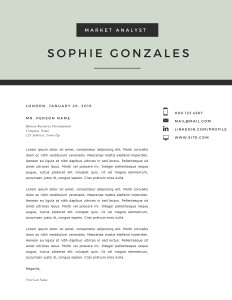
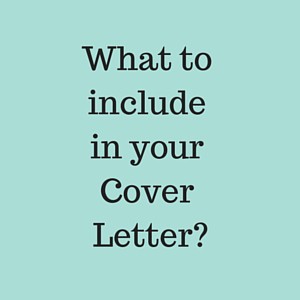
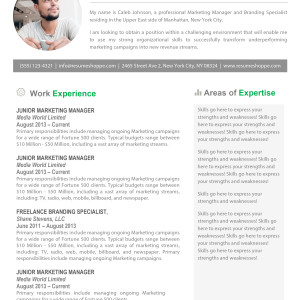 The Caleb Resume
The Caleb Resume 